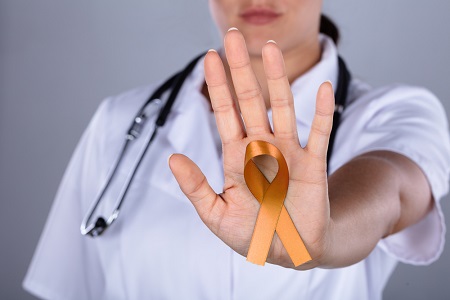
Dealing with the physical and neurological effects of multiple sclerosis can be quite harrowing, new research shows how MS sufferers often turn to cannabis for relief.
U.S., February 26, 2020 (420 INTEL)- While research is always ongoing, much has already been written about cannabis as an aid in helping with sleeping issues, depression, ADD, as having possibly potent anti-tumor properties, the ability to help regulate blood pressure, and as an immunological aid due to its anti-bacterial, anti-fungal, and anti-viral properties. The list goes on as far as research already done or ongoing that points to CBD (and cannabinoids in general) as being extremely useful in treating different medical ailments.
The idea of cannabis being useful for those suffering from multiple sclerosis is not new. There have been studies done on this subject over the years, and a growing body of medical research to support the theory.
What is Multiple Sclerosis?
Multiple sclerosis (MS) is a central nervous system disease where the patient’s own immune system attacks the myelin that coats their nerve cells. The name of a disease that does this is a demyelinating disease. Myelin is important because it forms a cover over the nerve cells that allows for electrical impulses to efficiently transfer between nerve cells.
Damage to this myelin therefore can cause all kinds of transmission problems where impulses are slowed down, or not getting through correctly, or at all. This damage to the nerve cells causes different symptoms like tingling sensations, burning sensations, chronic pain, numbness, issues with balance and coordination, problems with bladder control, vision issues (often blindness in one eye), and fatigue.
Where and how exactly multiple sclerosis comes about is still very much a mystery. As of yet there is no cure for multiple sclerosis and those that suffer from it are left to find the best ways to manage their symptoms. MS is way more commonly found in women, and generally comes on when a person is between the ages of 20-40 years old. About 2.5 million people suffer from it globally, some of whom experience what is called ‘relapsing remitting MS’ which is when a person’s symptoms come and go over time, essentially causing symptom relapses.
Because multiple sclerosis is a disease where the body is attacking itself, and damaging itself, it is known as an autoimmune disease. The cause for these diseases is unknown, but they all share the commonalities of a mis-functioning immune system that causes damage to the body. Other examples of autoimmune diseases are celiac disease, rheumatoid arthritis, Grave’s disease, and type 1 diabetes, to name just a few.
Older Research
The idea of using cannabis for MS is not new at all. In fact, a 2004 randomized, double-blind, placebo controlled study, was done to investigate just that. The investigators used a cannabis based medicinal extract (CBME) to test if it produced any benefit to multiple sclerosis sufferers over a placebo. Participants included 160 patients who all had substantial issues with spasticity, tremors, pain, bladder control issues, and spasms.
The results were interesting and showed outcomes through a Visual Analogue Scale (measures the frequency and intensity of a symptom), as well as looking at the patient’s level of fatigue, disability, their mood, cognitive abilities, and how they slept. Following the use of the cannabis extract, there was a reduction in primary symptom score from an average of 74.36 to an average of 48.89.
With the placebo it went down as well from 74.31 to 54.79. While the placebo group also did show a reduction in symptoms, the cannabis extract group showed a greater amount.
New Research
Earlier this month, a study was published called Cannabis use in people with multiple sclerosis and spasticity: A cross-sectional analysis. In this study, investigators took a look at cannabis use among people with multiple sclerosis who have spasticity issues. The study was done using self-reporting by patients. Several different key points of information are interesting when looking at this particular group of people. The study found the following:
- 36% use cannabis regularly
- 54% have used cannabis in general
- 58% of those who use cannabis, use it daily
- 79% reported cannabis as being useful for helping with spasticity
- 26% use prescribed cannabis
- 85% of participants said cannabis was helpful with pain
- 55% used topical cannabis applications, 52% reported administering with edibles
- 26% use cannabis along with prescribed medications to deal with spasticity
- 79% of those who use cannabis use multiple ways to administer it
Self-reporting studies like this are often interesting because they show what people with issues will naturally gravitate to. When people are sick, they generally go for the best option to feel better, and will stick with this, even if given other medical solutions.
It’s also interesting to see how they use cannabis, and how they see it effecting their symptoms. Self-reporting isn’t always the best way to gain information, and has its own pitfalls, but it can often show a pattern of behavior, and in this case it shows a pattern of MS sufferers with spasticity issues choosing to use cannabis to help with their symptoms.
Safety of Cannabis Use for Multiple Sclerosis
One of the questions that tends to come up when looking at cannabis use and multiple sclerosis is the safety of it. This question, of course, is prevalent when looking at any kind of treatment, but in this particular case, since cannabis has a certain reputation due to cannabinoid THC, the question does come up. In the first study I mentioned, which investigated using a CBME against a placebo, it was noted by the investigators that “There were no significant adverse effects on cognition or mood and intoxication was generally mild.”
This was investigated elsewhere as well. In 2018, investigators published a study which looked at the efficacy and tolerability of cannabis for multiple sclerosis patients. The idea was to see not just how well it worked for symptom maintenance, but how it effected the patient taking it. This study also used a randomized, double blind, placebo-controlled setup. The symptoms they were interested in most were pain, spasticity, and bladder function.
The results showed significant findings for cannabinoids producing relief for all three symptoms. While there were no severe adverse effects noted, when it came to tolerability, cannabinoids showed a possibly higher risk. Overall the study investigators concluded that cannabinoids do offer a certain efficacy, and are safe to use.
Into the Future
While firm answers might not be possible just yet, research has been promising and offers a glimmer of light to those suffering from multiple sclerosis. CBD, and cannabis in general, still hold quite a bit of mystery in terms of what they’re actually capable of, but those who use it already to help with their MS spasticity and pain issues seem to choose it whether their doctor prescribes it or not. And that sure says something.
 Investment value finders Investment value finders
Investment value finders Investment value finders



